| | |

Chapter 9
|
| | |
|
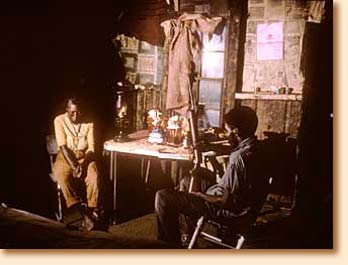 |
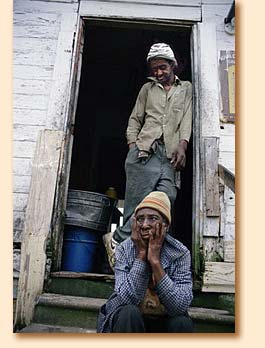 |
|
|
|
Later I got to live with some of his field workers, who were blacks and
fugitive Mexicans. Their situation is depressing, to put it mildly.
On the left screen Ida and Joe are seen 20 years ago. On the right side the worsening despair I see when I stay with
them today. |
| | |
|
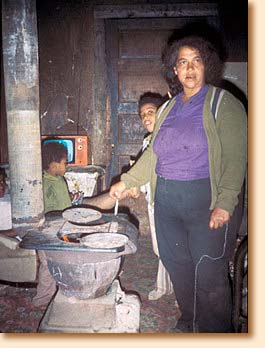 |
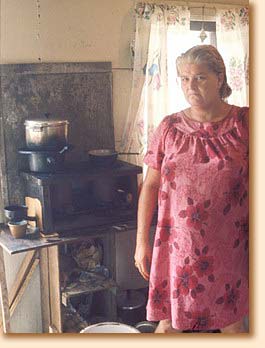 |
|
|
|
Many are
too destroyed to talk about their situation, but this woman, who was one of the
few poor whites in the fields, told me in her little rented shack about
conditions:
|
| | |
|
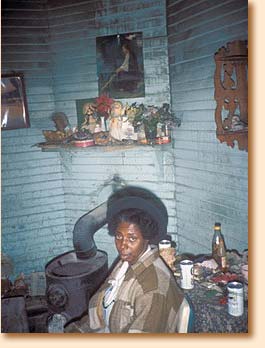 |
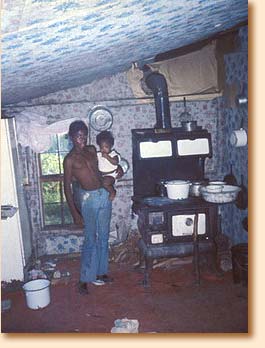 |
|
|
|
- Have you ever been on food-stamps?
- If I could get it I would, because I really need it.
|
| | |
|
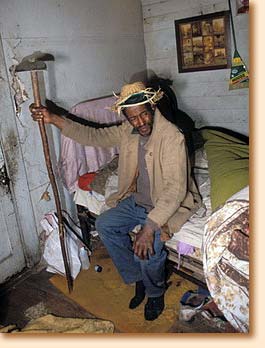 |
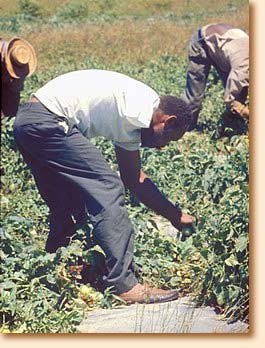 |
|
|
|
- How much does your husband make a week usually?
- Not much, thirty-five or forty dollars a week, maybe. That
don't pay the rent and for something to eat. Were there times where you had nothing to eat? There's been times where I had nothing, not even a
cigarette. I
have been down where I just had sugar, water and bread.
|
| | |
|
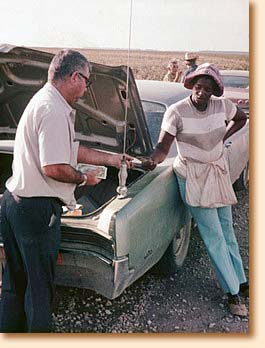 |
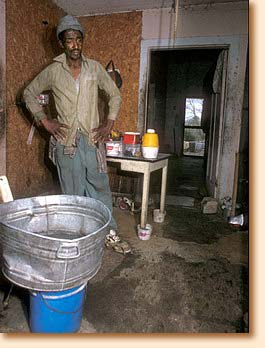 |
|
|
|
- But who do you blame for it all?
- The government. It is trying to starve us out.
|
| | |
|
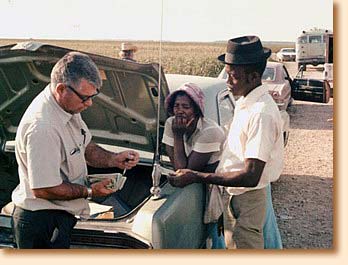 |
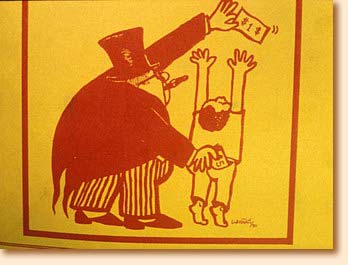 |
| | |
|
- You don't blame any of the people around here?
- No, I don't blame my people. I blame my government. |
| |
|
|
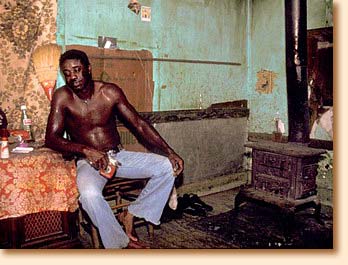 |
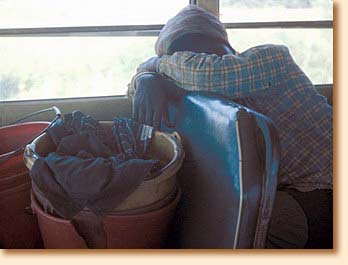 |
| | |
|
- I am glad you don't blame the blacks or the Mexicans for it. A
lot of people do, you know.
- No, this comes from the government itself.
|
| | |
|
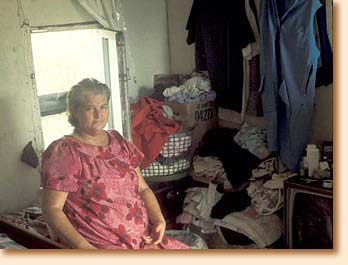 |
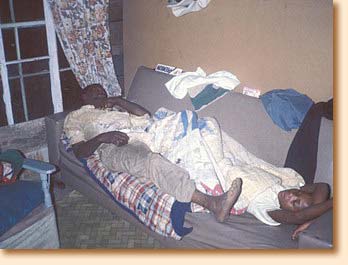 |
| | |
|
That's the reason there has been all the rioting and all this
stuff.... I've had my clothes and everything burned out three
times. |
|
|
|
|
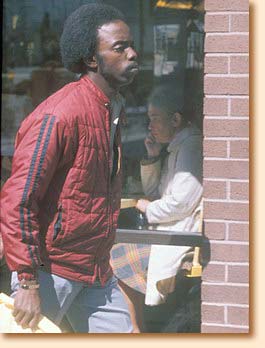 |
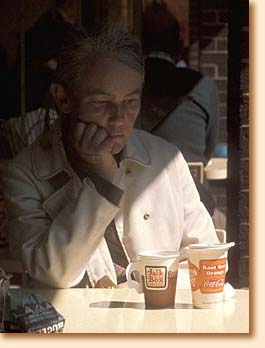 |
| | |
|
It was a happy surprise to find here a poor white who did not indirectly
blame the blacks for her misfortune, as it is very common among the poor whites
to make them scapegoats.
|
| | |
|
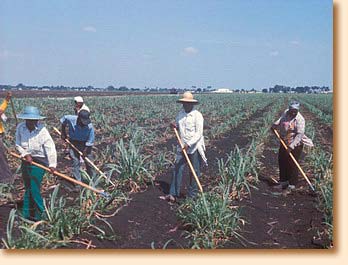 |
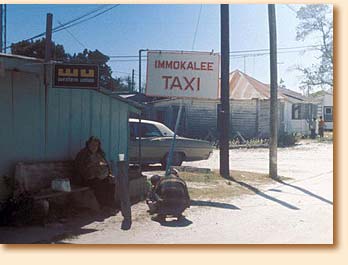 |
| | |
|
Her town, Immokalee, had more slave camps than any
other town and it was here that some of the white owners were imprisoned by
Florida's attorney general.
|
| | |
|
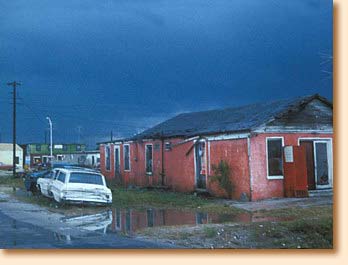 |
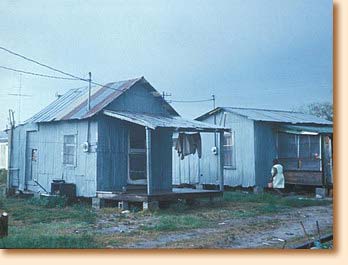
|
| | |
|
But conditions are still the same and there are now
armed guards in the camps who shoot at all intruders.
|
| | |
|
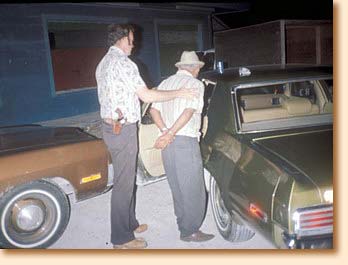 |
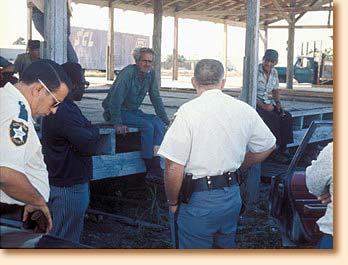 |
| | |
|
When an NBC-TV crew
arrived in town, they were beaten up and shot at and they did not manage to
film anything.
|
| | |
|
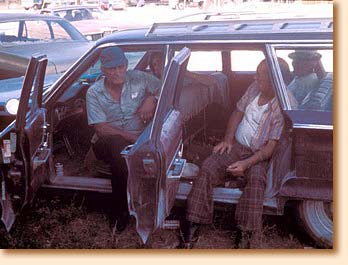 |
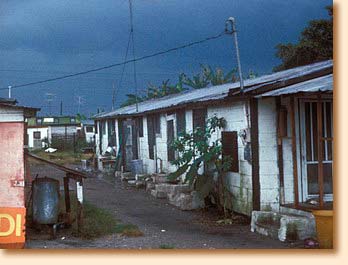 |
| | |
|
Even white rednecks of the violent type, who certainly knew how
to defend themselves, warned me not to go to that town and did not even dare to
drive me there in daylight.
|
| | |
|
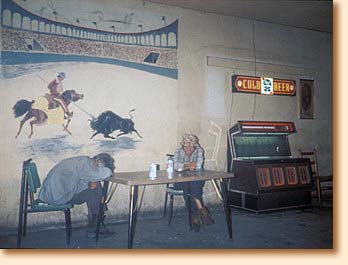 |
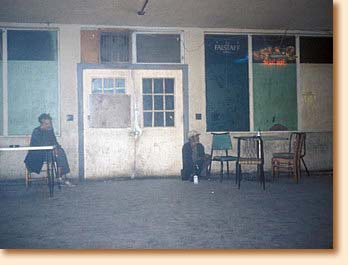 |
| | |
|
Even today I'm amazed that I escaped alive.
|
| | |
|
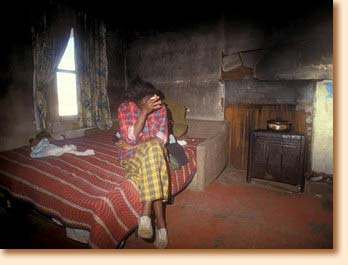 |
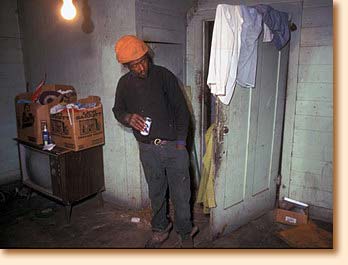 |
| | |
|
I ended up living there for a week with some poor
migrant workers, but to this very day I am amazed that I escaped with my life.
|
| | |
|
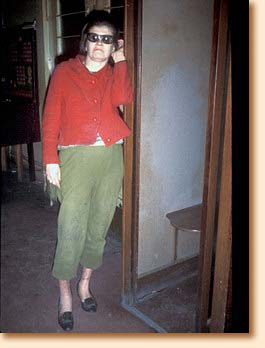 |
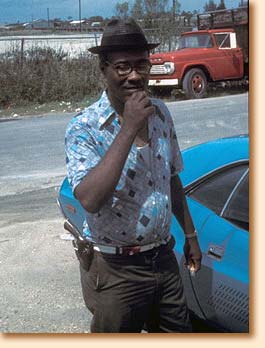 |
| | |
|
Somehow I managed to make friends with this armed black guard, who gave
me a little food and followed me at a distance in the streets to protect me.
|
| | |
|
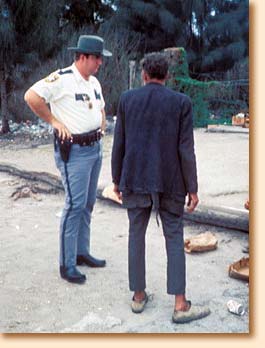 |
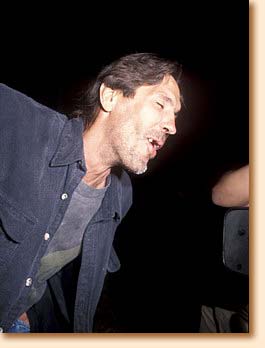 |
| | |
|
The police chief told me that 25 dead bodies had been found in the streets
in the last half year in this town of only 3,000 inhabitants.
|
| | |
|
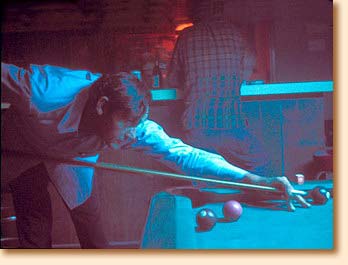 |
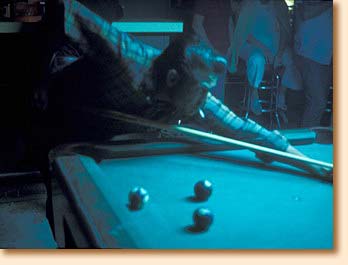 |
| | |
|
Every single
night I could hear gunshots. I saw more blood there than in any other place in
America.
|
| | |
|
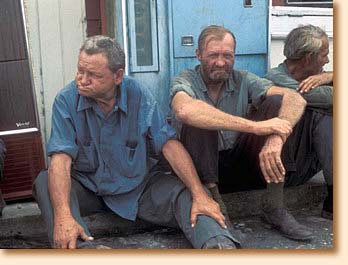 |
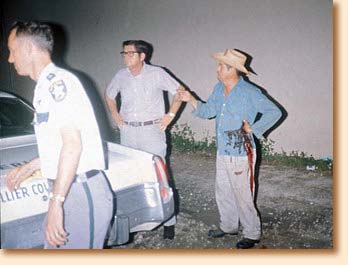 |
| | |
|
This Mexican was stabbed in the stomach while I was sitting next to
him (and calmly asked the bartender to call the sheriff, when it was his turn
to be served).
|
| | |
|
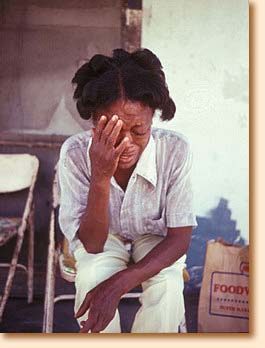 |
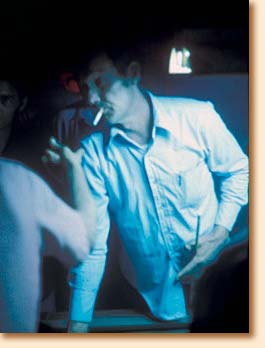 |
| | |
|
Every morning there was a row of shabby individuals along the
road who had been knocked down and robbed of everything the night before and
now tried to hitch-hike out of town. But many will never get out of this slave
camp.
|
| | |
|
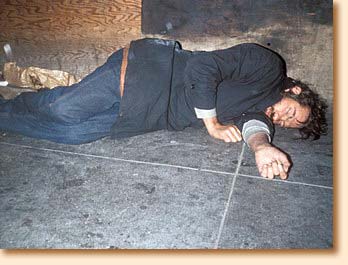 |
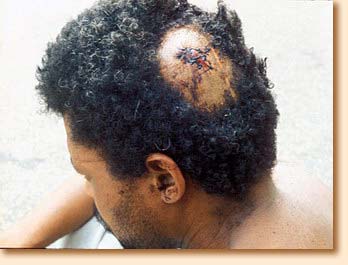 |
| | |
|
What soon came to interest me most was not the dead bodies, but the live
ones – people in whom everything was extinct.
|
| | |
|
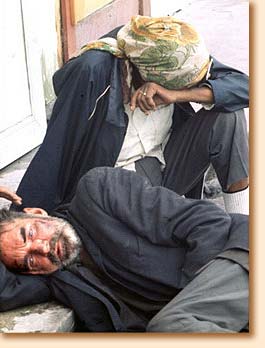 |
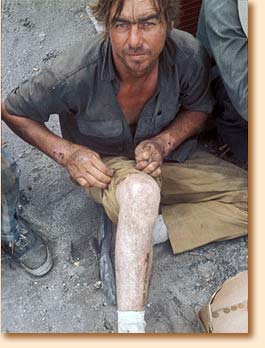 |
|
|
|
The whites seemed to have much
less resistance than the blacks.
|
| | |
|
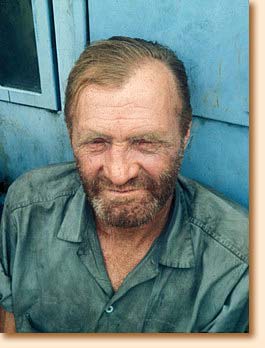 |
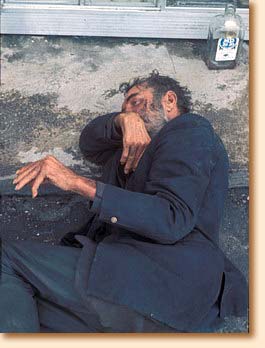 |
|
|
|
These exhausted wretches, who earlier had
managed to survive by working hard seven days a week like the other slave
workers, had slowly succumbed and were now just lying and waiting to die.
|
| | |
|
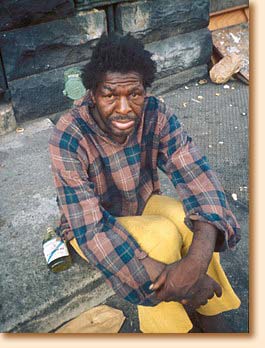 |
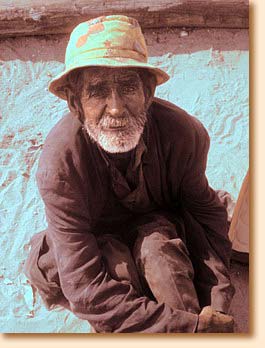 |
|
|
|
At
night they slept in the streets.
|
| | |
|
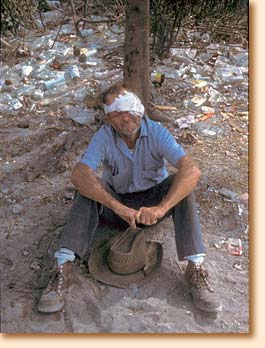 |
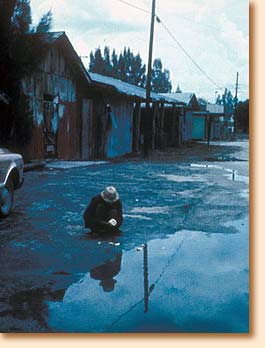 |
|
|
|
Often they never woke up again.
|
| | |
|
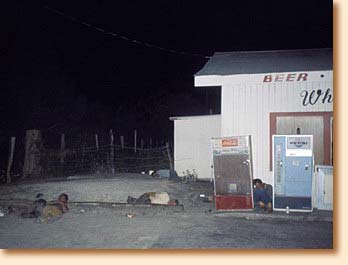 |
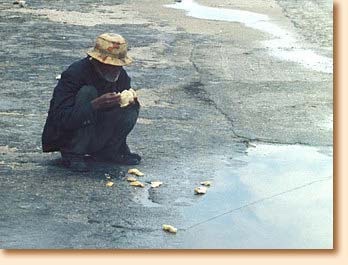 |
|
|
|
One of them is
squeezed in between the Pepsi- and the Coca-Cola machines.
|
| | |
|
|
| | |